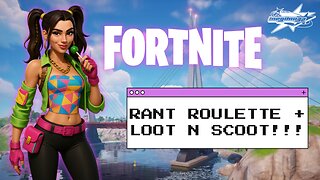Premium Only Content

Writers Are on Strike: Here’s What It Means for You
Writers Are on Strike: Here’s What It Means for You
The members of the WGA, the union that represents most film and television writers, are on strike. For audiences, this means production has halted for most film and TV series. While the main Yellowstone series is ending on Paramount Network, a(nother) spin-off series has been greenlit for the cable channel and it will also air on sister streaming channel Paramount+. Big Mouth spin-off Human Resources announces Miley Cyrus, Florence Pugh, and more will guest-star for season 2. A Babylon 5 animated movie is in the works at Warner Bros. Plus, trailers for the new Apple TV+ series Silo and season...
The members of the WGA, the union that represents most film and television writers, are on strike. For audiences, this means production has halted for most film and TV series. While the main Yellowstone series is ending on Paramount Network, a(nother) spin-off series has been greenlit for the cable channel and it will also air on sister streaming channel Paramount+. Big Mouth spin-off Human Resources announces Miley Cyrus, Florence Pugh, and more will guest-star for season 2. A Babylon 5 animated movie is in the works at Warner Bros. Plus, trailers for the new Apple TV+ series Silo and season 16 of FXX’s It’s Always Sunny in Philadelphia, and more of the past week’s biggest news in TV and streaming. TOP STORY The Writers Are on Strike: Here’s What It Means for You People picket outside of Paramount Pictures studios during the Hollywood writers strike. At 12:01 a.m. PT on Tuesday, May 2, the Writers Guild of America officially went on strike.
Unionized TV and film writers across the country have shut down Final Draft, closed their laptops, and (if they’re Quentin Tarantino), shut their notepad and put away their worn-out pencils. Instead, these professional scribes and allies grabbed picket signs and are attending in-person protest lines. The main goal? Obtaining a livable wage during a time where studios have reaped huge profits from streaming programming.
It’s been 15 years since the WGA last went on strike. It lasted 100 days, running from November 5, 2007 through to February 12, 2008. During that era, streaming was in its infancy (still referred to as “new media” and mostly limited to self-produced web series that weren’t owned by giant corporations like Netflix) and the amount of originally scripted programming was nowhere near the hundreds of options available for viewing today. Since then, every three years, the WGA and Alliance of Motion Picture and Television Producers (AMPTP), have been successful in renewing mutually agreed upon contracts. However, on Monday night, the negotiations between the two groups (which had been meeting for a month) failed to reach an agreement.
Questions about how this strike will impact your favorite shows and movies, as well as the industry as a whole, are at the forefront of many peoples’ minds.
What are the writers asking for and what does this mean for audiences at home? Let’s break things down … Why Are the WGA Writers Striking? In May 2023, the Writers Guild of America agreed to strike for fair pay. (Photo by Getty Images) The short answer: money. The longer answer is that this money comes from different places.
In addition to the seasonal salaries that TV writers receive for working on their series, they are also paid through residuals. These are ad revenue-generated checks that come every time an episode (or a movie) they wrote airs on TV (residuals also come for actors and other people who work on the production). For major shows that continue to have long lives in syndication, like Seinfeld or The Office, this is a huge deal.
But as streaming has grown to dominate the television landscape, seasonal paychecks have plummeted thanks to shorter episode orders (which means less weeks of work and, therefore, less weekly paychecks as well as smaller writing staffers and, therefore, less jobs). To complicate things, many cable and broadcast network shows are now also available on streaming. There is the issue that episodes of popular programs, like Law Order or Chicago Fire or Abbott Elementary that are viewed on streaming services after they air on their original broadcast home could result in little or no payout for the people who wrote for those shows– especially because of streamers’ notoriously cagey details on viewer metrics. Good thing I, as the writer of this episode, do not benefit from this success because of the current...
-
 3:49:38
3:49:38
EricJohnPizzaArtist
6 days agoAwesome Sauce PIZZA ART LIVE Ep. #53: Celebrating Rumble Gaming, Freedom, and 10 Years of Pizza Art!
39.2K5 -

IsaiahLCarter
1 day ago $0.79 earnedChristopher Hitchens Knew. || APOSTATE RADIO 022 (feat. Dan Burmawi)
19.8K1 -
 2:35:29
2:35:29
vivafrei
14 hours agoEp. 271: Elon Musk Creates New Party? Big Beautiful Bill PASSES! Diddy Cover-Up? AND MORE!
149K116 -
 LIVE
LIVE
Spartan
7 hours agoPro Halo Player | Ranked, SWTOR later (maybe)
28 watching -
 LIVE
LIVE
xXFadedAngelXx
1 hour agoSPLITGATE RANKED IS HERE (Splitgate 2)
176 watching -
 LIVE
LIVE
iCheapshot
3 hours agoChill Vibes on The Pokémon Scarlet
18 watching -
 1:52:48
1:52:48
Nerdrotic
6 hours ago $1.66 earnedThe Mystery of the Navel Idols w/ Graham Langdon | Forbidden Frontier #107
114K6 -

megimu32
4 hours agoOFF THE SUBJECT: Sunday Sillies - Rants, Reactions & Ridiculousness
31.5K5 -
 LIVE
LIVE
MyronGainesX
15 hours ago $1.53 earnedFormer Fed Explains Bryan Kohberger Guilty Plea, MAGA Meltdown On Tucker, And MORE!
1,805 watching -
 1:03:11
1:03:11
Sarah Westall
7 hours agoHow the United States could Dominate Global Finance for the Next 100 Years w/ Reggie Middleton
44.3K18